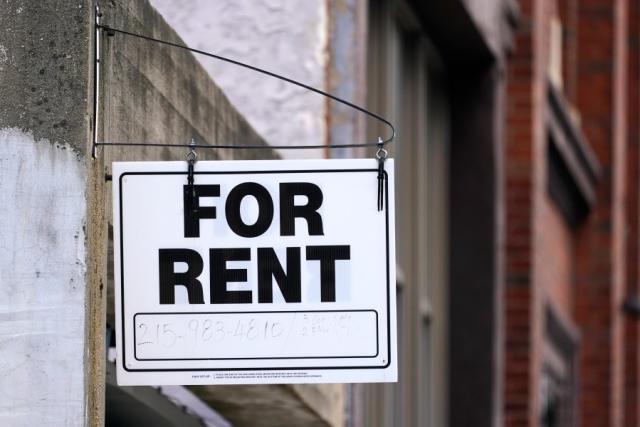Navigating the complexities of rental agreements and tenant rights in Washington can be daunting. With the rising cost of living and fluctuating rental markets, understanding rent increase laws is paramount for any Washington resident who rents. This article aims to provide a clear breakdown of Washington’s rent increase laws in 2024, empowering tenants to confidently understand their rights and protect themselves from unfair practices.
Rent Control in Washington: The Basics
Washington State does not have statewide rent control laws. This means landlords generally have the freedom to increase rents as they see fit, subject to certain notice requirements and potential limits currently under legislative discussion.
Notice Requirements for Rent Increases
Landlords in Washington must provide tenants with adequate written notice before raising the rent. The required notice period depends on the type of tenancy:
- Month-to-Month Tenancies: Landlords must provide a minimum of 60 days’ notice prior to a rent increase.
- Fixed-Term Lease Agreements: Rent cannot be increased during the term of a fixed lease unless both parties mutually agree in writing to modify the lease.
Important Note: The city of Seattle has an ordinance requiring at least 60 days’ notice for rent increases of 10% or more within a 12-month period.
Maximum Allowable Rent Increases
While Washington doesn’t have a statewide cap on rent increases, there’s a growing movement advocating for the implementation of rent stabilization measures. As of 2024, several bills are under consideration in the Washington State Legislature:
- House Bill 1388: This proposed legislation seeks to limit annual rent increases across the state to a maximum of 3% plus the rate of inflation, as measured by the Consumer Price Index (CPI).
- Other Proposed Rent Stabilization Measures: Lawmakers are considering additional proposals similar to HB 1388, some with stricter limitations.
It’s important for tenants to closely monitor these legislative developments as they could significantly impact the rental landscape.
Exceptions and Special Considerations
- Seattle Rent Increase Regulations: Seattle has slightly stricter rent increase regulations than the rest of the state:
- Requires 60 days’ notice for rent increases of 10% or more within a 12-month period.
- Subsidized Housing: Tenants residing in subsidized housing may be subject to different rent increase regulations based on the specific program they participate in. Federal guidelines usually restrict increases in this type of housing.
Discrimination and Retaliatory Rent Increases
Washington law prohibits landlords from increasing rent based on discriminatory factors such as:
- Race
- Color
- Religion
- National Origin
- Sex
- Disability
- Familial Status
Additionally, landlords cannot raise rent in retaliation for a tenant exercising their legal rights, such as:
- Reporting housing code violations
- Joining a tenants’ union
- Requesting repairs
Resources for Tenants
If you’re a tenant in Washington and have concerns about a potential unfair rent increase or need additional information about your rights, here are some valuable resources:
- Tenants Union of Washington State: (https://tenantsunion.org/rights/rule-changes-rent-increases)
- Washington State Attorney General’s Office: (https://www.atg.wa.gov/)
- Northwest Justice Project: (https://nwjustice.org/)
- City of Seattle: Renting in Seattle: (https://www.seattle.gov/housing/renters)
Conclusion
Staying informed about Washington’s rent increase laws is essential for tenants to advocate for themselves and ensure fair housing practices. While statewide rent control isn’t currently in place, the legislative landscape is shifting, making it crucial to monitor the status of proposed rent stabilization measures. Utilize the resources provided if you have questions or concerns regarding your rights as a tenant.
FAQs
Q: Does Washington have rent control? A: Currently, there are no statewide rent control laws in Washington. However, some cities like Seattle have local ordinances with slightly stricter rent increase regulations. Additionally, several rent stabilization bills are under consideration in the State Legislature.
Q: How much notice does my landlord need to give me before increasing my rent? A: The required notice period depends on your tenancy type: * Month-to-month tenancy: 60 days’ notice minimum. * Fixed-term lease: Rent cannot be increased during the lease term unless you and your landlord agree to a modification in writing. * Seattle: If the increase is 10% or more in a 12-month period, 60 days’ notice is required, regardless of tenancy type.
Q: Are there any limits on how much my landlord can increase my rent? A: As of 2024, there’s no statewide limit. However, several rent stabilization bills are being considered in the legislature. These bills, like House Bill 1388, propose capping rent increases at a percentage plus the inflation rate.
Q: Can my landlord raise my rent if I complain about repairs or join a tenants’ union? A: No. Retaliatory rent increases are illegal in Washington State. Your landlord cannot raise your rent in response to you exercising your legal rights.
Q: I live in Seattle. Do different rules apply to me? A: Yes. Seattle has a slightly stricter rent increase regulation requiring at least 60 days’ written notice for rent increases of 10% or more in a 12-month period.
Q: My landlord is trying to increase my rent by an unreasonable amount. What can I do? A: Here are your options: * Negotiate: Try negotiating with your landlord and see if you can reach a reasonable compromise. * Dispute the increase: If you believe the increase is excessive or in violation of any laws, you may be able to dispute it. * Seek help: Contact the Tenants Union of Washington State, the Washington State Attorney General’s Office, or the Northwest Justice Project for guidance and support.
Q: Where can I find more information about tenant rights and rent increase laws in Washington? A: Check these excellent resources: * Tenants Union of Washington State: https://tenantsunion.org/rights/rule-changes-rent-increases * Washington State Attorney General’s Office: https://www.atg.wa.gov/ * Northwest Justice Project: https://nwjustice.org/ * City of Seattle: Renting in Seattle: https://www.seattle.gov/housing/renters
Remember: Rent increase laws in Washington are subject to change. Stay updated on the status of proposed rent stabilization laws, as they could significantly impact your rights as a tenant.



